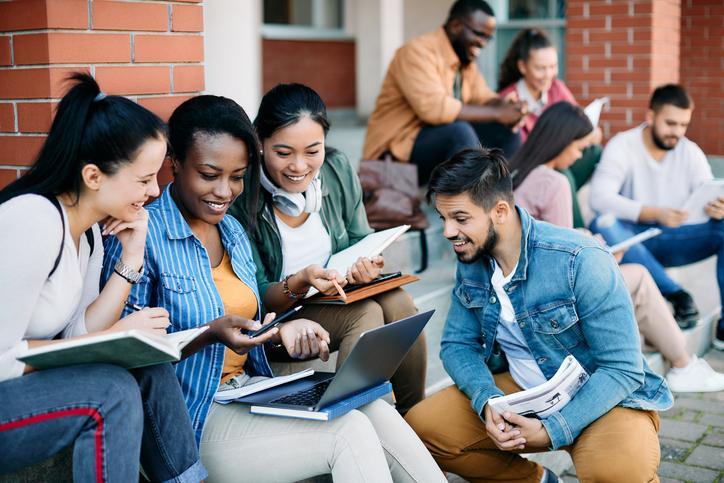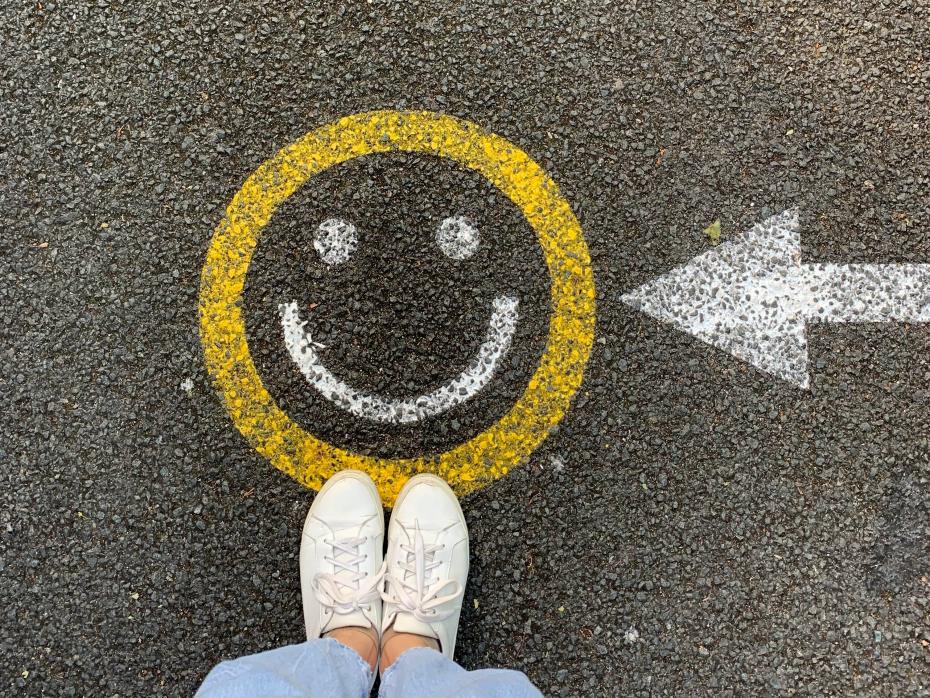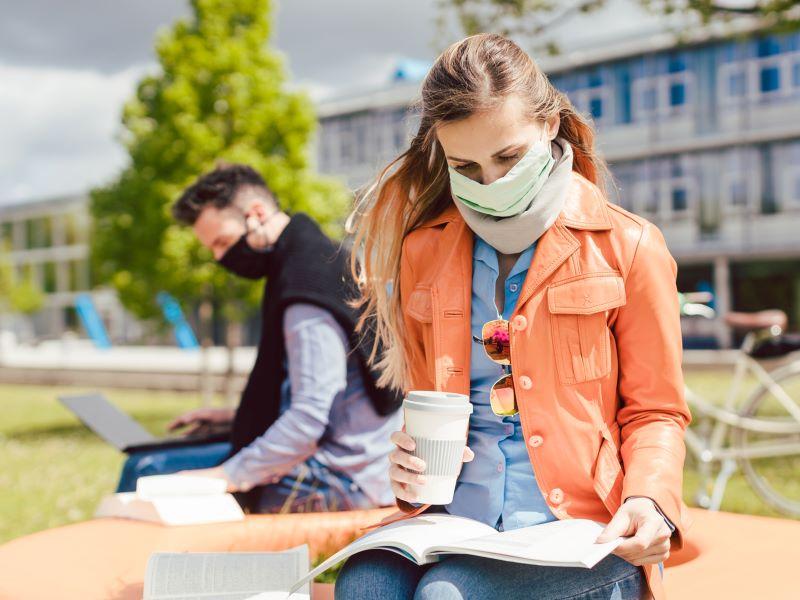The pandemic changed everything about the experience of higher education for the vast majority of students, from how they are taught and learn course content to how they interact with faculty, peers and others across the institution. According to a panel of administrators focused on student success in different ways at their universities, supporting students during this time and, eventually, post-pandemic requires effort from all corners of campus.
At a Digital Universities Week US session on 11 May, attendees will meet in small groups to talk through their ideas and challenges related to helping students during this time and as the world moves towards post-pandemic realities. Here’s how the panel responded to the three questions that will be workshopped at the event:
What is your understanding of the ‘student experience’? Who owns it on your campus?
Student mental health and well-being are interconnected with academic success and persistence to graduation, said Megan Kennedy, director of the Resilience Lab at the University of Washington, which promotes well-being at the institution through research, education and programmes geared towards students, faculty members and staff. Even pre-Covid, her institution knew that it was important to start addressing mental health and well-being in a comprehensive way that looked at how various levels of the system could support individuals.
That work involved thinking about policies, practices and structures in place at the institution. The responsibility for student mental health and well-being “couldn’t just be on the burden of our trained mental health therapists”, Ms Kennedy said.
“It’s one thing to say it’s a shared responsibility,” she said. “It’s another thing to get more concrete about what folks can do.” Because the student experience isn’t uniform, the work can involve focusing on specific groups, such as black, indigenous and people of colour (Bipoc) students. But helping a particular group tends to result in more broadly improving the student experience for all, she argued.
David Zamojski, assistant dean of students at Boston University, agreed that it was everyone’s responsibility to support the student experience, which can look different student to student. “We’ve been thinking a lot about how to promote connections during the past few years,” he said. “That has really been critical to student success, where there has been isolation from the larger university community, isolation from peers and this sense that students haven’t been fully realising the college experience during the pandemic.”
During campus closures, universities missed “a real understanding of place, a real understanding of culture, a real understanding of community” and students felt a lack of connection when events such as important annual traditions were cancelled, he added. “It’s been hard. But I do think that every member of the community has a responsibility to nurture the student experience, including the students themselves, their family members, guardians, faculty, staff – all of us.”
In Meghan Perdue’s experience as a digital learning scientist at the Massachusetts Institute of Technology, not many faculty would have said pre-pandemic that they were responsible for the student experience. Something positive that came from the pandemic, she said, “is a real realisation that they have a connection with these students”.
“It’s kind of letting the roles of student and professor be removed, and just seeing each other as people.”
However, students and faculty are working out what the new normal is now that campus has reopened, she said, explaining that students seemed to be trying to make up for lost time by doing all the activities they could and going to parties. “They were going at like 300 per cent,” said Dr Perdue. Faculty, meanwhile, were baffled and frustrated that students were prioritising so many things over academic work.
“We’re still negotiating this and what it means for everyone to have ownership if priorities are different,” she said. “It’s a rethinking of why the student is here, what’s the big picture.”
Mr Zamojski noted that staff at all levels, including custodians and dining staff, care a great deal about the students they’re supporting and their “daily displays of kindness mean a lot to students”.
“That goes a long way to creating the kind of supportive community that would allow students to navigate some of the challenges they’ve faced over the last couple of years,” he said.
- Beyond the limits of the LMS: ways to communicate effectively with students
- WhatsApp and campus trails: supporting students in building peer support networks
- How to create a sense of belonging for black students in a majority white academy
How much should colleges personalise academic experiences and support for students, and in what ways does this require looking at particular types of students?
In terms of whether students could have choices about attending class in person or remotely, Dr Perdue advocates for flexibility – yet a lot of universities aren’t allowing that. “This would require some serious policy changes,” she said.
In large classes where lectures are often filmed anyway, what is the added benefit of being there in person? she asked. And for smaller classes, she believes faculty should be able to have more control over when class would be online or in person and when it’s OK for students to attend either way.
As for learning technology, Dr Perdue said, generally less is more. “It’s added stress on students to learn new systems and new technologies,” she said. Only technology “that’s really going to improve learning and the experience” should be pushed.
Mr Zamojski noticed that when students had the choice of going to class or attending remotely, in-person learning happened only occasionally. “There was just something nice and comfortable about attending online via Zoom,” he said. They had interactions with peers in the residence halls and other venues on campus, so they had some sense of campus experience even if not physically attending class.
Institutional officials, Ms Kennedy observed, would make statements about being an in-person university. “That has been part of the narrative over the last couple of years,” she said. Yet students will talk about the value of online learning for them as well. That’s especially the case for students who have other responsibilities, such as being a parent, or who have disabilities that make it beneficial to be able to watch class lectures online.
According to Ms Kennedy, universities are asking themselves: “Who are we? What do we value? What do students need? How does online learning support students who have different needs or student learners in marginalised communities?”
“I’m kind of interested to know if our identity will evolve over time,” she said. “Right now, we are in the midst of that tension.”
Dr Perdue said she wished the conversation could be framed in the same way as the return to the office. “I don’t really hear about those things in the same tones, but it’s really the same question. People are saying: ‘If I can do some of my job at home, I don’t want to go in every day just to be there – just to make the real estate market function the way it was before.’”
Professors should be asking if individual class sessions need to be in person or if they could function as well online, she added. “I think universities are afraid to ask that question. But I don’t think they should be.” Sometimes there isn’t a clear value of being on campus for a particular class meet-up, she said.
In terms of figuring out a new normal, it’s important to remember that we have all lived through a traumatic, profound experience, Dr Perdue said. “We’re kind of building a new system from scratch while also at the same time trying to force things into the old system. I think a lot of the frustration around why it’s not going back to the way it was is because we’re different.”
Positives of that include students being able to receive counselling support remotely, or even via text, Ms Kennedy said. Conversations on the Boston University campus have included “what we can do differently moving forward, to be as strong a team as possible, so that we can support students as well as we can”, Mr Zamojski said.
How does lifelong learning intersect with ‘student experience’?
In response to this question, Dr Perdue reflected on how universities were teaching students how to learn. “Learning is not just an experience in a classroom,” she said. “It’s like, do you have the tools to teach how to learn new things like to be a lifelong learner, to take on a new task and to learn the skills you need to complete the task? Or to become interested in a new topic and to learn about it in a way that you’re not subject to misinformation?”
Providing lifelong learning opportunities, not just degrees, to students is part of universities’ responsibilities, she argued. “We’re not just institutions that teach 18- to 23-year-olds” – or master’s degrees or PhDs, she said.
Ms Kennedy, meanwhile, pointed out the number of things she’s had to learn in the past five years, such as new systems and processes. One of the Resilience Lab’s initiatives supports instructors and considers how they can create classrooms that promote student well-being. A guidebook her team published on this includes a section on growth mindset, which suggests that instructors be open with students about times they’ve encountered setbacks or experienced failure, and how those experiences helped them grow. Letting students see your learning processes as you grapple with difficult concepts is one way professors can endorse lifelong learning, she said.
Mr Zamojski suggested considering the lifelong connections people have to institutions. Boston University, for example, offers courses for local seniors and for retired faculty and staff. Plus, there are many cultural opportunities for members of the local community to come to campus for concerts, stage productions or gallery openings. “We feel a strong sense as an institution,” he said, “of being in service to not just our students but the larger community, and to nurturing connections and reaching out with opportunities for education.”
The task force members:
Megan Kennedy, director of the Resilience Lab, University of Washington
David Zamojski, assistant dean of students, Boston University
Meghan Perdue, digital learning scientist, Massachusetts Institute of Technology
Digital Universities Week US, co-hosted by MIT's Abdul Latif Jameel World Education Lab, will be 9-12 May 2022. Learn more and register.




comment